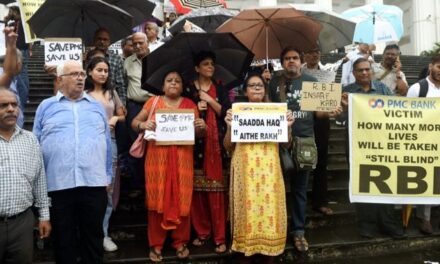70% restaurants in Mumbai, Bengaluru benefitted from GST: Survey


Representational Image
Hotels and restaurants across Mumbai and Bengaluru have benefitted from the implementation of Goods and Services Tax (GST), a survey has shown.
Over 70 percent of the restaurant owners in the two cities believed GST is a positive decision for the industry, while 68 percent businesses felt it will ease compliance since it is backed by technology, said the survey by Grant Thornton India, a leading assurance, tax and advisory firm.
High rentals and difficulty in retaining experienced staff are key challenges faced by the restaurant industry in Mumbai and Bengaluru, said the survey titled ‘Bon Appetit’ Emerging trends, opportunities, and challenges in Indian restaurant industry’.
Lack of clarity on regulations has also been mentioned as an area of concern, it added.
The Grant Thornton’s Bon Appetit survey was based on findings from 35 (Mumbai) and 29 (Bengaluru) owners and Key Managerial Personnel (KMPs).
The survey showed that like GST, demonetisation also affected the restaurant industry as cash is still a predominant mode of payment and accounts for 20-30 percent of receipts in a restaurant.
However, the impact of demonetisation appeared to have been more in Bengaluru, where only one-third of the respondents said there is no impact, compared to Mumbai, where it was 60 percent, it said.
M-wallets have just started picking up and account for 4-5 percent of the collections, it added.
“The Indian restaurant industry has evolved and grown significantly over the past two decades and continues to grow at a steady pace.
“This can be attributed to the changing demographics, increase in disposable incomes, urbanisation, and growth of organised retail. The market is highly segmented on account of varying income levels and age bracket of the population,” said Grant Thornton India LLP Partner Dhanraj Bhagat.
The survey revealed that quality of food emerged as the key driver for growth of restaurants, followed by location and pricing.
For Mumbai respondents, having organic food is more important than concerns related to pricing and cuisine preference, while affordability was highlighted as the key emerging trend in consumer preferences in Bengaluru.
Meanwhile, the respondents said pan-India or regional expansion was the primary strategy for growth.
In Mumbai, respondents said global expansion and cuisine addition are two other crucial strategies for increasing footprint.
When it comes to funding these expansions, Mumbai respondents preferred private equity firms, whereas Bengaluru saw bank loans as the primary source, the survey concluded.
When GST was introduced in July last year, air-conditioned restaurants levied 18 percent tax on food bills while non air-conditioned restaurants charged 12 percent. The rate was subsequently slashed to 5 percent in November last year.
With agency inputs













